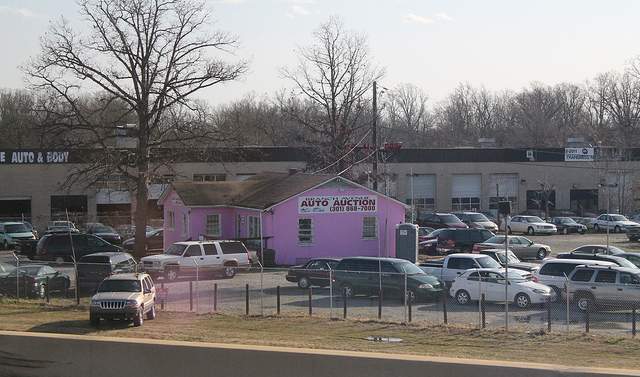For nearly 10 years, I’ve taken calls at Clark Howard’s Consumer Action Center.
The calls can be about anything, but the calls that have been the most difficult to deal with are those where the caller has purchased a car or truck from a “buy here/pay here” lot and they have almost immediately faced repair bills that easily exceed the value of the car.
The story generally starts off the same. Somebody saves up enough for a down payment on a car but, because of either bad credit or no credit, they can’t get financing anywhere but these generally unscrupulous lots.
They step onto the lot and see a car that they’ve only dreamed of driving and they finance it. To sweeten the deal, many of these lots offer a free 30-day warranty that covers the drivetrain only. These are worthless and I’ve rarely heard a good experience about a repair being covered.
What often happens next is the car—usually a very high mileage model that’s at least 6 years old—has some catastrophic failure that the buyer just can’t afford to fix. But, they still owe a lot of money on the car, which on average, is usually far more than it is worth. It’s a no-win situation that usually results in default on the financing by the customer.
Welcome to the world of high mileage and heavy use
Where do these buy here/pay here folks get these cars? The answer is at dealer and public auctions. Just about every metropolitan area has numerous auctions taking place every week. These auctions are a font of high mileage, heavily used and sometimes damaged cars.
Dealer auctions are limited to those who hold dealer’s licenses so an average consumer can’t purchase there. The cars in these dealer auctions are usually in good enough condition where they can be placed in the used car inventories of new car dealers.
Meanwhile, public auctions are open for anyone to attend and buy from. There is a mix of lower-end buy here/pay here dealers and consumers milling about inspecting the cars. These are where the least expensive and the most potentially troublesome cars get sold.
Take, for example, a 2008 Hyundai Sonata that was returned in 2011 with 60,000 miles on a 3 year, 36,000 mile lease. That car is almost automatically disqualified from being in the inventory of higher-end dealers because it’s a high mileage car. The leasing companies generally send those types of cars to dealer auctions where used car dealers might buy them unless its condition is below average.
Second-tier dealers tend to stock fairly late model cars that have more miles than average and have generally been deemed as not suitable for new car dealers to stock as used. These cars are sold slightly under book value because of ‘high miles.’ If the cosmetic condition of the car is below average, it can end up just about anywhere, but it’s a good chance it will end up at public auctions.
Are you brave enough to dare a public auction?
Back to our intrepid Hyundai Sonata. In 2011, it was sold to a second-tier dealer who sold it to a buyer who then drove it for 3 years adding 15,000 miles per year in the process. In 2014, after 3 years of ownership, the car has 105,000 miles, 2 owners and, possibly a blemish on the CarFax report. That car will most likely be sold at a public auction.
Some people have learned to circumvent the dealers by attending these public auctions and bidding on cars that suit their needs and, often times, their wants. It’s certainly a way to save some money, but the risks are huge. The auctions want cash, so there’s none of the sketchy financing, but what you buy is yours—hook, line and sinker.
Each auction has its own rules. There are some auctions where the rules allow you to preview the vehicles up for sale and test-drive them. There are some that don’t allow test drives, but will allow you to start the car and inspect them. Taking them to a mechanic for a proper inspection is pretty much impossible.
My real-life test of the public car auction
So, is this any way to purchase a vehicle? I’m going to find out by purchasing a car at auction and using it as my primary transportation.
This car will have to replace the vehicles I currently drive and be capable of performing the tasks I require every day. That means local trips around town, carrying dogs to the park and getting me back and forth to work.
My goal is to find reliable transportation for less than $5,000 that I can put into service with less than $500 in repairs. I’d really like this car to be decent looking though reliability is of the utmost importance.
Because I am not a dealer, I will have to attend the public auctions to find suitable transportation. And, because auctions are generally the last time a car gets sold on the open market prior to going to the junk-yard, the risks of purchasing there are huge.
Check back next week to find out what I bought and what challenges I face trying to make do with as inexpensive a car as possible.
Best of the Week
-
The top 10 deals of the week!
-
The best deals at Amazon right now!
-
The best deals on TVs available now
-
The best deals on laptops right now
-
Here are the best Walmart deals happening now!
-
16 of Clark Howard’s favorite deals
-
125+ of the most useful items that can make life easier
-
18 eco-friendly items you can reuse instead of buying over and over
-
The best deals of the Lowe’s Spring Fest Sale!

